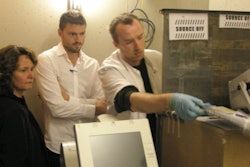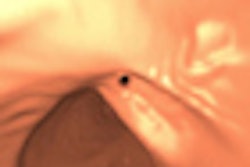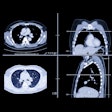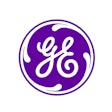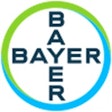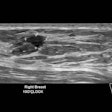
Accelerated partial-breast irradiation (APBI) brachytherapy produces comparable local recurrence outcomes with much better cosmesis compared to whole-breast irradiation, according to research presented on Friday at the European Society for Radiotherapy and Oncology (ESTRO) World Congress of Brachytherapy in Barcelona, Spain.
Dr. Csaba Polgár, director of the Centre for Radiotherapy of the National Institute of Oncology in Budapest, reported findings from the first randomized clinical trial conducted in Hungary to compare 10-year outcomes of the two treatments for patients with early-stage breast cancer.
 Dr. Csaba Polgár.
Dr. Csaba Polgár.
A total of 258 women were enrolled in the trial. After having breast conservation surgery, they underwent conventional whole-breast irradiation or APBI brachytherapy administered with a multicatheter applicator.
The rate of local recurrence was comparable, at 5.1% for the conventionally treated group and 5.9% for the APBI-treated group. There was also no significant difference in overall survival, cancer-specific survival, and disease-free survival.
"However the differences in cosmetic outcome between the two groups were striking," Polgár said. "Eighty-one percent in the APBI group had good to excellent results, as opposed to only 63% of women who received whole-breast irradiation."
The trial shows that it's possible to use a faster and more focused treatment without compromising survival, Polgár said.
"It is a little like comparing a total mastectomy with a lumpectomy," he continued. "We have found that we can improve cosmetic outcomes, lessen side effects, and achieve greater patient satisfaction with a less invasive and more cost-effective technique."
Fewer than 10% of early-stage breast cancer patients in Europe currently receive APBI, and in some countries the technique is still considered investigational. One factor that may deter its use is the cost of the single-use applicator for each patient.
However, the cost of APBI may be offset for qualified patients who live far from a cancer treatment center, because treatment time is reduced from six weeks to five days. When a patient cannot obtain six weeks of radiation therapy, and the options become not having any radiotherapy or having a mastectomy, APBI becomes a very cost-effective alternative.




